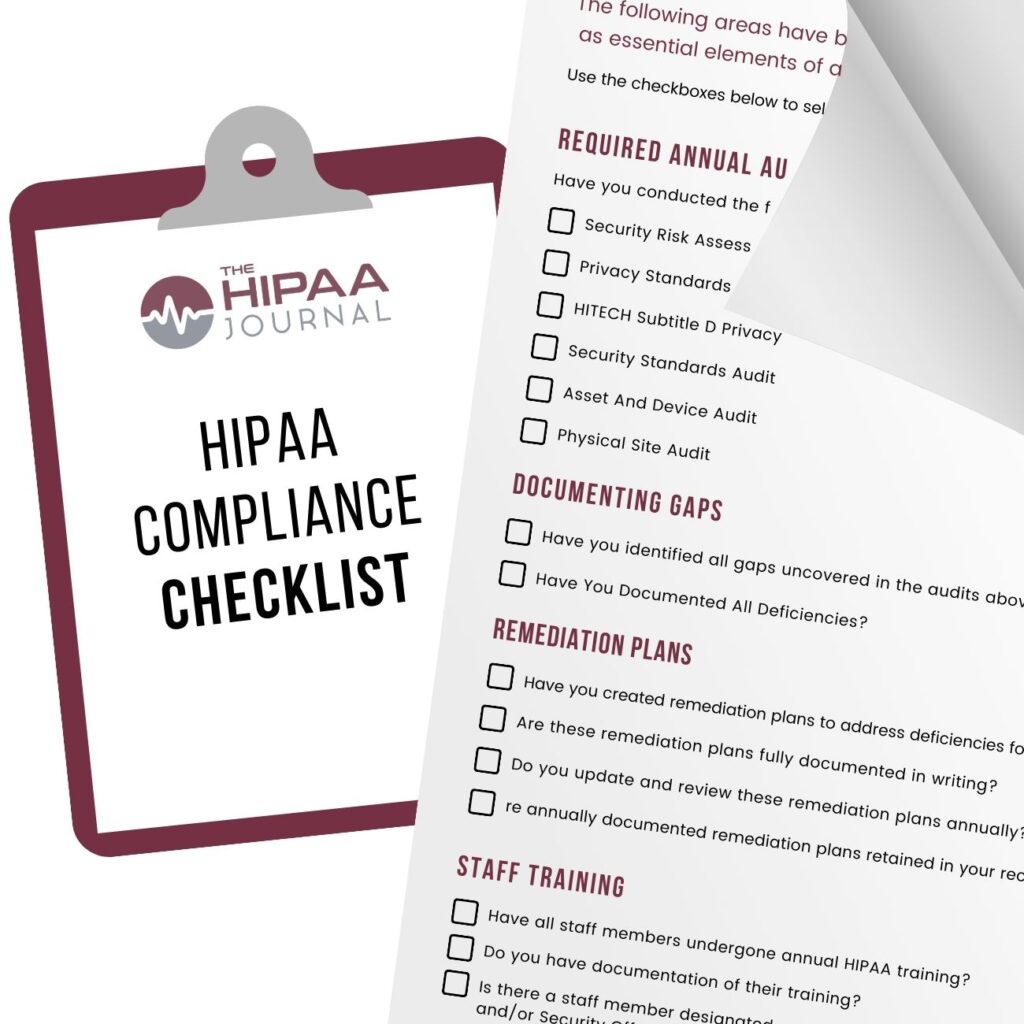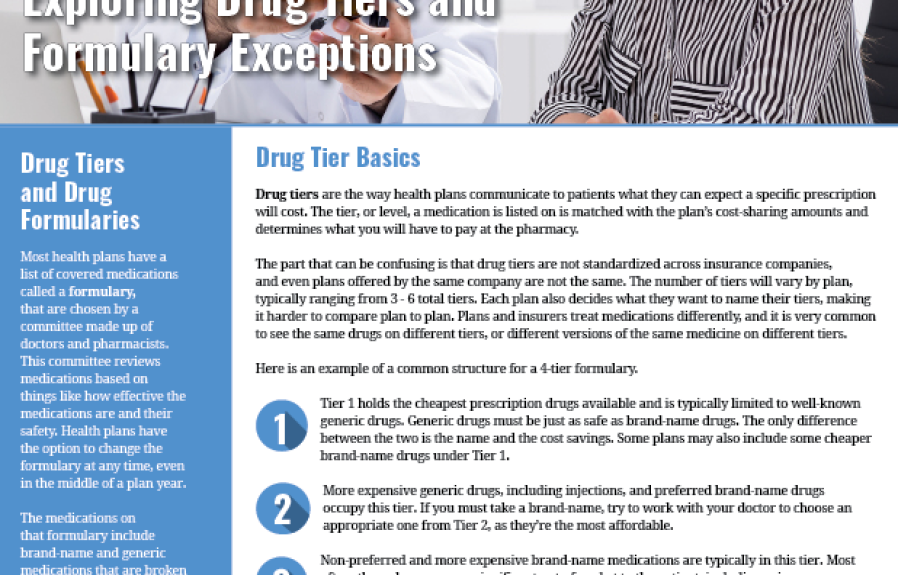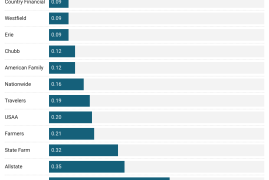Group health insurance is cheaper than individual because the risk is spread across multiple individuals, resulting in lower premiums. Group health insurance is a cost-effective option for many individuals looking to secure reliable healthcare coverage.
Unlike individual health insurance plans, which solely cover a single person, group health insurance provides coverage to a group of people, such as employees of a company or members of an organization, at a lower cost. This cost savings is primarily due to the principle of risk pooling, where the potential risks and costs are shared among the members of the group.
In this way, the risk is spread out, reducing the financial burden on each individual and resulting in cheaper premiums. Let’s explore the reasons why group health insurance tends to be more affordable and the advantages it offers to both employers and employees.
Advantages Of Group Health Insurance
Group health insurance is often cheaper than individual coverage due to lower costs and risks spread across a larger pool of people. With group plans, businesses can negotiate better rates and offer comprehensive coverage. This makes it a cost-effective option for both employers and employees, providing access to quality healthcare at a lower price.
Economies Of Scale
Group health insurance benefits from buying in bulk, which reduces costs for each individual member.
Risk Pooling
Pooling resources spreads the risk among the group, leading to more stable premiums.
Cost Factors Influencing Group Health Insurance
Group health insurance is more cost-effective than individual plans due to several key factors. These include the larger pool of insured individuals, which spreads the risk, as well as potential employer contributions that lower costs for employees. Additionally, group plans often offer more negotiable rates with insurance providers.
There are several key factors that contribute to the relatively lower costs of group health insurance compared to individual plans. Understanding these factors can help individuals make well-informed decisions when it comes to their healthcare coverage. Let’s take a closer look at the main cost factors influencing group health insurance:
Employer Contributions
One significant advantage of group health insurance is that employers typically contribute a substantial portion towards the premium costs. By pooling together a large number of employees, employers can negotiate better rates with insurance providers. This means that employees enjoy the benefit of lower monthly premiums. The employer contribution significantly reduces the financial burden on employees and makes group health insurance more affordable overall.
Lower Administrative Costs
Group health insurance plans have lower administrative costs compared to individual plans. Insurance providers deal with a single entity, the employer, rather than multiple individuals. This reduces administrative procedures and paperwork, allowing insurance companies to operate more efficiently. The cost savings derived from streamlined administrative processes are passed on to policyholders, resulting in lower premiums and overall healthcare costs.
Reduced Underwriting And Marketing Expenses
Unlike individual health insurance, group health insurance typically has reduced underwriting and marketing expenses. Underwriting involves the evaluation of individual applicants’ health risks and the determination of their insurability. In the case of group health insurance, underwriting is simplified as the entire group is considered as a single entity rather than individual participants. This simplification reduces administrative costs associated with underwriting. Additionally, marketing costs are significantly reduced since group policies are sold to employers rather than individual consumers. These cost savings enable insurance providers to offer lower premiums for group health insurance coverage.
Regulatory Impact On Group Health Insurance Costs
Mandates And Regulations
The regulatory impact plays a crucial role in determining the cost-effectiveness of group health insurance. Mandates and regulations set by the government directly influence the pricing of group health insurance plans. Insurance companies are subject to specific regulatory requirements for providing group coverage, which can lead to more affordable premiums for employees and employers alike.
Tax Benefits
Another factor affecting the cost of group health insurance is the array of tax benefits available for employers. The tax benefits can significantly reduce the overall expense of group health insurance, making it more economical compared to individual plans. Employers can leverage tax deductions, tax credits, and pre-tax contributions for their employees’ health insurance, enhancing the affordability of group coverage.
:max_bytes(150000):strip_icc()/hsa.asp-final-9b3f314e10b44ee5b645055dd926a8ad.png)
Credit: http://www.investopedia.com
Comparison Of Group Vs. Individual Premiums
In the realm of health insurance, the cost discrepancy between group and individual plans is a noteworthy consideration. When comparing group vs. individual premiums, several factors come into play that contribute to the cost differential. Understanding these variations can help individuals and businesses make informed decisions about the most suitable option for their needs.
Actuarial Differences
One of the primary reasons for the cost disparity between group and individual health insurance plans is the actuarial differences. Group health insurance plans use a process called “community rating,” where the risk and cost are spread across a larger pool of individuals, which mitigates the impact of high-risk individuals. In contrast, individual health insurance plans are assessed based on the individual’s health risk, leading to higher premiums for those with pre-existing conditions or other health concerns.
Coverage Levels
Another aspect influencing the cost differential between group and individual health insurance plans is the coverage levels. Group health insurance plans often provide more comprehensive coverage at a more affordable rate due to the collective bargaining power and larger numbers of participants. In contrast, individual health insurance plans may offer more limited coverage options and have higher premiums to compensate for the heightened risk associated with smaller pools of insured individuals.
Case Studies
Group health insurance offers lower costs due to risk pooling, where premiums are spread among all members. This shared risk results in decreased individual rates, making it an affordable choice for businesses and employees alike. Case studies illustrate the cost-effectiveness and advantages of opting for group health insurance.
Real-world Examples Highlighting Cost Savings
When it comes to understanding why group health insurance is cheaper than individual plans, real-world case studies offer valuable insights. These examples provide concrete evidence of the cost savings that employers and employees can experience by opting for group health insurance coverage.
Case Study 1: Small Business
Let’s take the example of a small business with ten employees. Purchasing individual health insurance plans for each employee can be a costly affair, as the premiums may be higher due to the smaller risk pool. However, by offering group health insurance, this business can leverage the combined purchasing power of its employees to negotiate more affordable rates with insurance providers.
By spreading the risk over a larger group, the insurance company can lower the premiums. This cost reduction can significantly benefit both the employer and the employees, making group health insurance a cost-effective choice for this small business.
Case Study 2: Non-profit Organization
Now let’s consider a non-profit organization with fifty employees. This organization decides to switch from individual health insurance plans to a group plan. By doing so, they can take advantage of lower premiums offered to larger groups, thanks to economies of scale.
Additionally, the non-profit organization can negotiate better coverage options within the group health insurance plan, ensuring comprehensive coverage for all employees while keeping the costs in check. This affordability is crucial for non-profit organizations that typically operate on tight budgets.
Case Study 3: Self-employed Professionals
Even self-employed professionals can benefit from group health insurance. Suppose a group of self-employed freelancers in the same industry decides to form a professional organization. By pooling their resources and forming a group, these individuals can access more competitive insurance rates than they would be able to secure for individual plans.
Furthermore, group health insurance for self-employed professionals often comes with added advantages, such as access to a larger network of healthcare providers, discounts on wellness programs, and additional perks that enhance the overall value of the coverage.
| Case Study | Key Takeaways |
|---|---|
| Small Business | Group health insurance lowers premiums through a larger risk pool. |
| Non-Profit Organization | Economies of scale lead to lower premiums and better coverage options. |
| Self-Employed Professionals | Pooling resources as a group enables access to more competitive rates. |
These real-world examples demonstrate the tangible benefits of choosing group health insurance over individual plans. Whether you’re a small business, a non-profit organization, or a self-employed professional, considering the cost savings and advantages offered by group health insurance can help you make an informed decision that benefits both your bottom line and your employees’ well-being.
By leveraging the power of a group, you can unlock cost savings without compromising on the coverage and benefits that are essential for maintaining the health and happiness of your workforce.
:max_bytes(150000):strip_icc()/insurtech.asp-final-d0c67eaba6084fd1a115a21cb55768ab.png)
Credit: http://www.investopedia.com
Challenges And Limitations
Challenges and Limitations:
Employee Turnover
High turnover rates can disrupt group health plans, affecting costs and coverage.
Customization Constraints
Group plans may lack flexibility for individual employee needs.
Future Trends In Group Health Insurance
Future Trends in Group Health Insurance: Innovations and market evolution are shaping the landscape of group health insurance, leading to more cost-effective and comprehensive options for businesses and employees alike.
Innovations In Plan Designs
Enhanced plan designs tailored to the diverse needs of employees will continue to drive group health insurance forward.
- Personalized coverage options ensure employees get the specific benefits that matter most to them.
- Wellness programs and incentives promote a healthier workforce and mitigate long-term healthcare costs.
Market Evolution
Ongoing market evolution is reshaping the landscape of group health insurance, offering new opportunities for businesses and individuals.
- Increased competition among providers leads to better coverage options and more competitive pricing.
- Digital solutions streamline the enrollment process and enhance the overall member experience.

Credit: http://www.hipaajournal.com
Frequently Asked Questions Of Why Is Group Health Insurance Cheaper Than Individual
Why Is Group Health Insurance Cheaper Than Individual?
Group health insurance is cheaper than individual plans because the risk is spread across a larger pool of people, lowering the cost for each individual. Employers often subsidize group plans, making them more affordable. Group plans also have lower administrative costs, further reducing the overall premium.
What Are The Advantages Of Group Health Insurance?
Group health insurance offers several advantages, such as lower premiums, comprehensive coverage, potential employer contributions, and guaranteed acceptance. It also provides access to a wider network of healthcare providers and often includes additional benefits like wellness programs and preventive care services.
How Does Group Health Insurance Benefit Employees?
Group health insurance benefits employees by providing access to affordable healthcare coverage, often with lower premiums and more extensive benefits than individual plans. Additionally, employer contributions to group plans help alleviate the financial burden of healthcare costs for employees and their families.
Conclusion
It is evident that group health insurance offers a more affordable option compared to individual coverage. By pooling resources and spreading the risk over a larger number of participants, insurers are able to offer lower premiums. Additionally, group plans benefit from economies of scale and negotiated rates with healthcare providers, further reducing costs.
Employers and employees alike can benefit from the financial advantages of group health insurance, making it a popular choice in today’s healthcare landscape.
{ “@context”: “https://schema.org”, “@type”: “FAQPage”, “mainEntity”: [ { “@type”: “Question”, “name”: “Why is group health insurance cheaper than individual?”, “acceptedAnswer”: { “@type”: “Answer”, “text”: “Group health insurance is cheaper than individual plans because the risk is spread across a larger pool of people, lowering the cost for each individual. Employers often subsidize group plans, making them more affordable. Group plans also have lower administrative costs, further reducing the overall premium.” } } , { “@type”: “Question”, “name”: “What are the advantages of group health insurance?”, “acceptedAnswer”: { “@type”: “Answer”, “text”: “Group health insurance offers several advantages, such as lower premiums, comprehensive coverage, potential employer contributions, and guaranteed acceptance. It also provides access to a wider network of healthcare providers and often includes additional benefits like wellness programs and preventive care services.” } } , { “@type”: “Question”, “name”: “How does group health insurance benefit employees?”, “acceptedAnswer”: { “@type”: “Answer”, “text”: “Group health insurance benefits employees by providing access to affordable healthcare coverage, often with lower premiums and more extensive benefits than individual plans. Additionally, employer contributions to group plans help alleviate the financial burden of healthcare costs for employees and their families.” } } ] }


Leave a comment